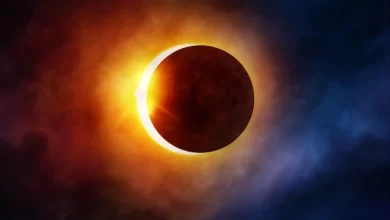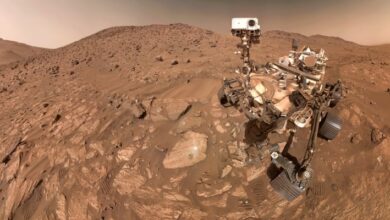Element of life found on Saturn’s moon Enceladus

Phosphorus, an essential element for life, has been detected in the ocean beneath the frozen surface of Enceladus, one of Saturn’s moons.
One of the most important places to search for life beyond Earth is Saturn’s moon Enceladus, which is estimated to have an ocean of liquid water under its icy crust.
Enceladus is one of the most reflective objects in our Solar system because it is covered in ice, and normally looks like a bright white snowball.
Probability of life on Enceladus
The ocean, located under the glacier on Enceladus, the second moon discovered around Saturn, has a thick crust of ice.
Phosphorus, an essential element for life, has been detected in the ocean beneath the frozen surface of Enceladus.
Based on data collected by NASA’s Saturn rover Cassini in 2017, the research detected the presence of phosphate in the ocean on the rocky ground beneath the ice-covered moon. Phosphorus element in the phosphate compound is found in the structure of DNA.
Carbon, hydrogen, nitrogen, oxygen and sulfur have been found on the satellite in the past.
The ideal place for life
The discovery of phosphorus and the fact that Enceladus had all the elements necessary for life raised the possibility that the satellite would be the “most ideal” place for life outside of Earth.






